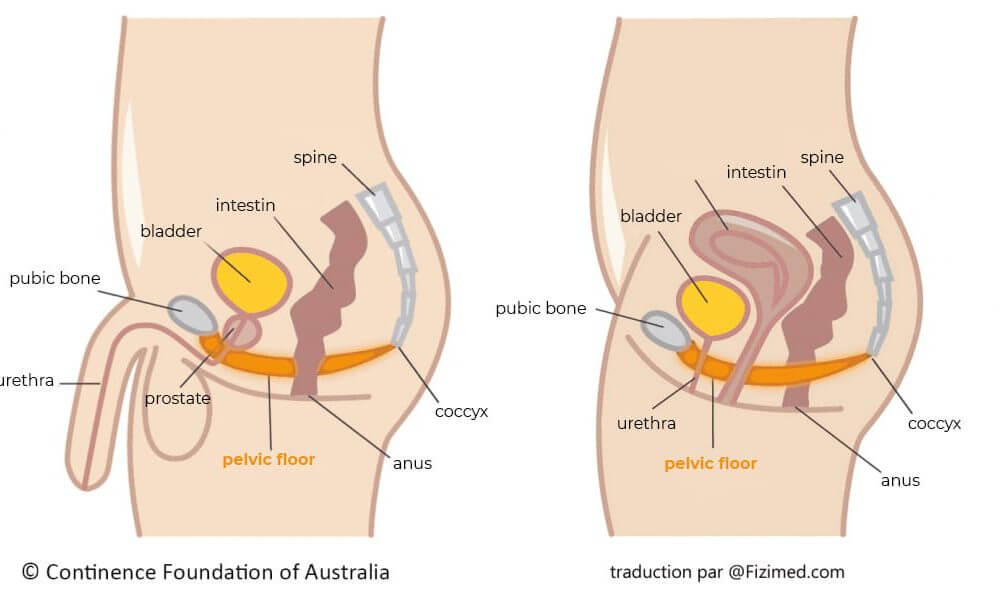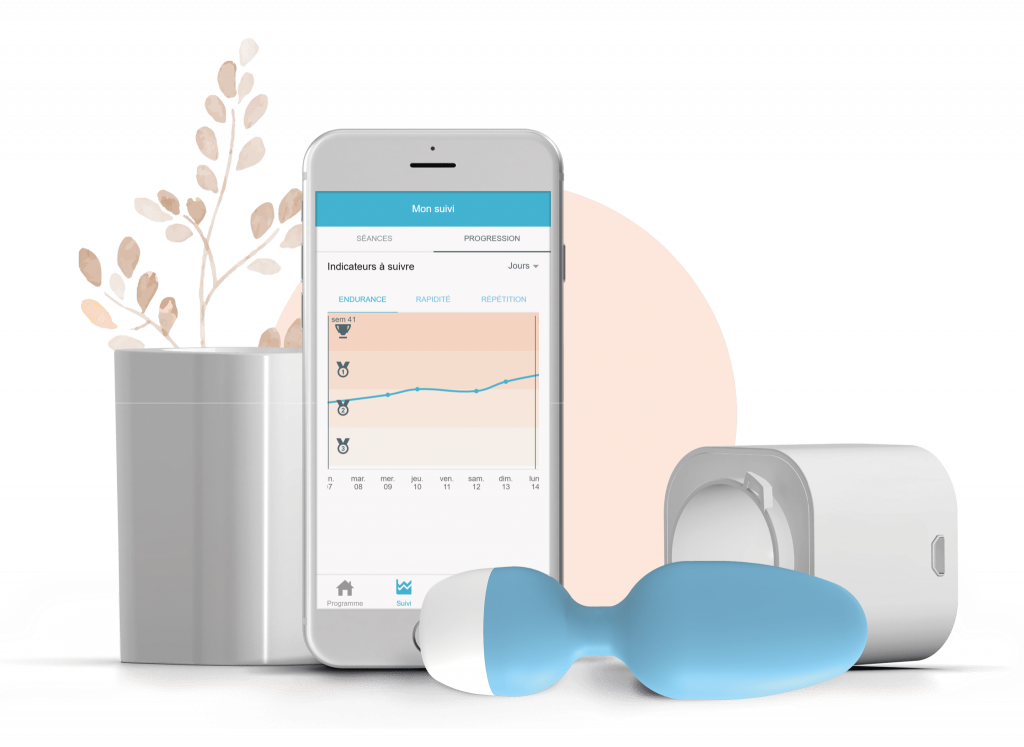
10 myths and misconceptions about the pelvic floor!
The pelvic… what? The pelvic floor! There are many misconceptions about the pelvic floor. However, we want to show you why we should talk a lot more about these often unknown muscles. And, don’t worry! You do not need to become an expert of human anatomy. Nevertheless, it is quite useful to know more about the pelvic muscles which have a huge impact on our intimate wellbeing and health. We’ve clarified 10 common myths and misconceptions about pelvic floor muscles for you here.

- 1 Men don’t have a pelvic floor
- 2 Only pregnant women or those that have given birth suffer from pelvic dysfunctions
- 3 If I suffer from urinary leakage I have to wear panty liners or adult diapers
- 4 Once my pelvic floor therapy sessions are over, I don’t need to take care of my pelvic floor anymore!
- 5 I can only do pelvic floor therapy with a health professional
- 6 Pelvic floor dysfunction = incontinence
- 7 Kegel exercises are annoying!!
- 8 “Stopping your flow of urine midstream” is a good training method for your pelvic floor
- 9 The pelvic floor is only a sex related topic
- 10 It is normal to have leakage when I sneeze, cough, laugh, run or jump
Men don’t have a pelvic floor
Wrong! Men also have a pelvic floor and should take care of their pelvic health!
Although, men’s pelvic floor muscles are less fragile than women’s, their pelvic floor can be weakened by treatment of prostate pathologies for example.
Even though, worldwide 1 woman out of 4 suffers from incontinence (and 1/3 of women older than 35), frequently caused by the weakening of their pelvic floor muscles; 1 man out of 10 is also concerned by this issue. The truth is, both men and women suffer from pelvic problems like pelvic pain, incontinence, and other pelvic dysfunctions. Therefore, both sexes should be concerned about their pelvic health. Besides of that, our pelvic health has a major impact on our sex life – for both partners.

Only pregnant women or those that have given birth suffer from pelvic dysfunctions
Wrong! Some women who don’t have children, are also affected. Among them: athletes, overweight women, women during their menopause, and those who carry a lot of heavy things.
Intense abdominal workouts can damage the pelvic floor and can lead to effort incontinence (also known as stress incontinence) when practicing jumping sports (trampoline, CrossFit, gym, horse riding…) or running.
The age also has an impact on our pelvic floor muscles. Like any muscle in our body, it is normal for pelvic muscles to become weaker with age.
Another impact: weight, which applies pressure on the pelvic muscles. Whether it is during pregnancy (the additional weight of the baby puts pressure on the pelvic floor muscles), or because of a repeated carrying of heavy things; the pelvic floor muscles can be weakened and you need to train it.
If I suffer from urinary leakage I have to wear panty liners or adult diapers
So, if this doesn’t bother you …. But wearing diapers at the age of 20, 30, 40 or 50, no thank you !
There are several other long-term solutions instead of wearing urinary pads or worse, diapers for adults.
The pelvic floor rehabilitation, whether it is by Biofeedback (like if you trained your pelvic muscles in the same way as your abs), electrical stimulation or other techniques, strengthens your weakened pelvic floor. You can download the free mobile app Emy – Medical Kegel exercises. Start now with a few exercises that you can do without the Kegel trainer.
The last solution if nothing else works is an operation to insert a surgical mesh (a medical product that helps supporting weakened or damaged tissues) … not the easiest solution, but better than wearing diapers for the rest of you life.
Once my pelvic floor therapy sessions are over, I don’t need to take care of my pelvic floor anymore!
We’d all be happy if that were true!! But as explained before, the pelvic floor is a muscle… and therefore you have to train it regularly in order to prevent uncontrolled weakening. This is not always easy because we can’t see the pelvic muscles from the outside, and even if our pelvic floor is well trained, the changes are not visible and it doesn’t make us look sexier. But inside, we feel so much better!
So, throughout your life, think about your pelvic floor. Even if we spent our last days in a nursing home, we will be more than happy to be the most autonomous and driest granny at that time!
I can only do pelvic floor therapy with a health professional
Physiotherapist as well as midwives are indeed health professionacan who can guide and accompany you during pelvic floor rehabilitation.
Without replacing pelvic floor therapy with a healthcare professional, there are some complementary solutions which can help you to maintain your results and improvements in a long run. At home, independently of time and place, Kegel exercises can significantly speed up your results. Kegel trainers, vaginal cones or geisha balls are only few examples of complementary solutions.
With the help of the smart Emy Kegel trainer by Fizimed you can visualize your results on your smartphone and stay motivated in the long term.

Pelvic floor dysfunction = incontinence
Yes, but not only. This misconception is a bit less wrong than the others…
The pelvic floor is a muscle which supports like a hammock major organs such as the bladder, the anus and the uterus.
Just like a tap, it controls the way and flow of urine and stool. That’s why, in case of a dysfunction, urinary or faecal incontinence might occur.
But a weakened pelvic floor can also have a negative impact on your intimate life, increase back pain, or it could even lead to pelvic organ prolapses.
Johanna for example, a tester of the Emy Kegel trainer, suffered from a weak pelvic floor. She couldn’t hold a tampon anymore. Because of that she could no longer go to the swimming pool or to the beach when she was on her period. Read her feedback about the Emy Kegel trainer.
Kegel exercises are annoying!!
We have noticed something: The number of women who are not continuing their pelvic floor rehabilitation at home is very high. And even when they do their Kegel exercises at home, no solutions seemed to motivate them in a long run.
90% of our users think that the Emy Kegel trainer is entertaining and motivating. A big step for a better therapy adherence and women’s recovery.
“Stopping your flow of urine midstream” is a good training method for your pelvic floor
In short, please don’t do that. This technique is controversially discussed, but it has been proven that it could cause harmful urinary infections. So please avoid it!
We have seen this before: Yes, a weak or loose pelvic floor often affects your sex life. If you know how to contract your pelvic muscles properly, it can also increase the pleasure for you and your partner. But not only that: Point 6 shows some other effects of a healthy or unhealthy pelvic floor.
It is normal to have leakage when I sneeze, cough, laugh, run or jump
This misconception is similar to number 3. It is important for us women to fight against the false ideas that we can not control our body and bladder anymore and that we have to wear diapers. Many of us are not aware of the positive effects of pelvic floor training and rehabilitation or Kegels. However, we do not have to accept “uncontrolled leakage” and loss of bladder control as something which is unpreventable and untreatable.
I hope you have been able to learn something about the pelvic floor in this article and clarify old misconceptions and myths. Spread the good news among your friends and family: Tell them, there are solutions for pelvic floor problems
Take care of yourself… and of your pelvic floor!




